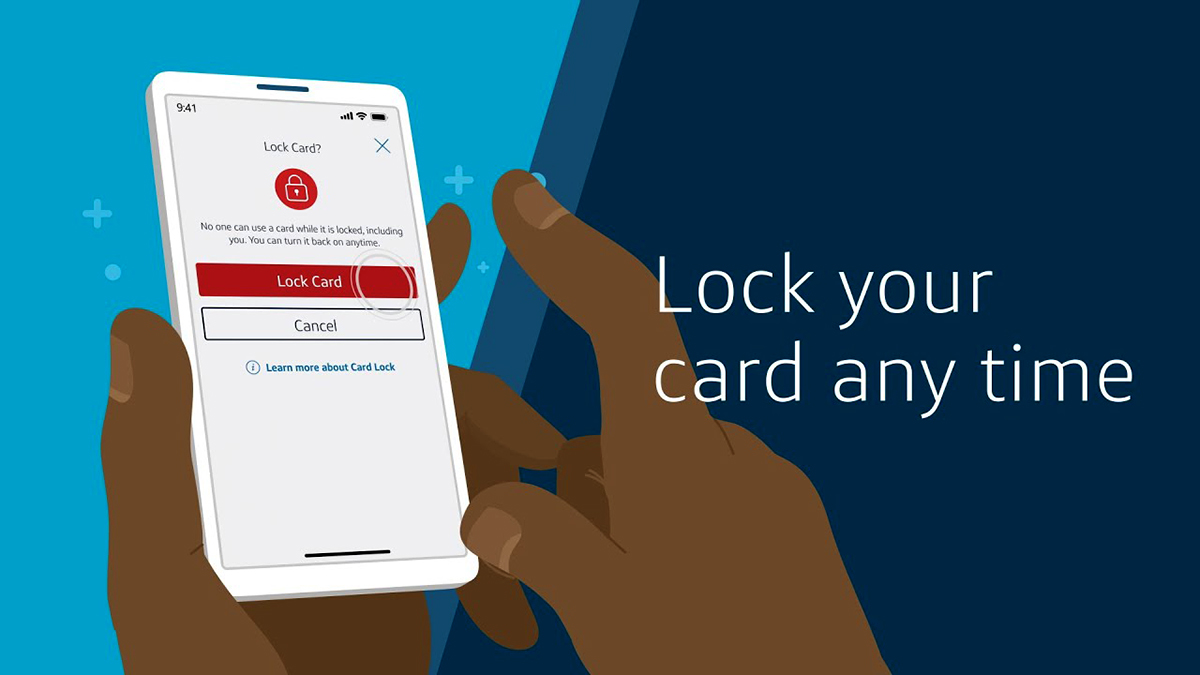Home>Finance>How Long Does Your Insurance Last After You Quit A Job?


Finance
How Long Does Your Insurance Last After You Quit A Job?
Published: November 18, 2023
Planning your finances after leaving a job? Find out how long your insurance coverage lasts and ensure you're protected in the transition.
(Many of the links in this article redirect to a specific reviewed product. Your purchase of these products through affiliate links helps to generate commission for LiveWell, at no extra cost. Learn more)
Table of Contents
- Introduction
- Unemployment and Insurance
- Understanding Health Insurance
- Health Insurance Coverage Periods
- COBRA Coverage
- State Continuation Coverage
- Short-Term Health Insurance
- Health Insurance Marketplace
- Life Insurance Coverage
- Disability Insurance Coverage
- Auto Insurance Coverage
- Homeowners/Renters Insurance Coverage
- Other Insurance Considerations
- Conclusion
Introduction
When you leave a job, whether by choice or due to circumstances like layoffs or termination, one of the concerns may be the status of your insurance coverage. Insurance, in its various forms, provides valuable protection and peace of mind, and understanding how long your coverage lasts after leaving a job is crucial.
Insurance coverage can encompass a range of areas, including health, life, disability, auto, and homeowners or renters insurance, among others. Each type of insurance has its own rules and regulations regarding coverage after job separation.
In this article, we will explore the different types of insurance and the coverage periods associated with them. We will also delve into options available to you to ensure you have continuous protection for you and your loved ones.
It is important to note that insurance regulations can vary depending on your location and the specific terms of your policy. Therefore, it is always recommended to consult with your insurance provider or seek professional advice to understand the specific details of your coverage.
Unemployment and Insurance
Unemployment can have a significant impact on your insurance coverage. When you leave a job, especially if it is not by choice, you may find yourself without the safety net of employer-sponsored insurance. It is essential to understand how this change affects the various types of insurance you may have.
One of the most critical types of insurance affected by unemployment is health insurance. For many people, employer-sponsored health insurance provides comprehensive coverage at a discounted rate. Losing this coverage can leave you vulnerable to unexpected medical expenses.
In addition to health insurance, unemployment can also impact other types of coverage, such as life insurance and disability insurance. These policies are often provided through an employer and may not continue after leaving the job. It is crucial to assess your needs and explore alternative options to ensure your financial well-being and protection.
Auto insurance is another type of coverage that may be impacted by unemployment. If you no longer have regular commuting or business-related driving, you may be eligible for reduced rates or discounts. It is advisable to speak with your insurance provider to discuss any changes in your driving habits and explore potential savings.
Furthermore, homeowners or renters insurance can also be affected by unemployment. If you are no longer living in the same residence or have a change in your financial circumstances, it is essential to inform your insurance company. They may need to make adjustments to your policy or provide alternative options that fit your new situation.
Understanding the implications of unemployment on your various insurance policies is crucial to ensure your financial security and peace of mind. It is recommended to reach out to your insurance providers and explore alternative coverage options to maintain continuous protection during this transition period.
Understanding Health Insurance
Health insurance plays a vital role in safeguarding your well-being and providing financial protection in the event of medical emergencies or routine healthcare needs. However, understanding the intricacies of health insurance can sometimes be challenging.
Health insurance typically covers a range of services, including doctor visits, hospital stays, prescription medications, and preventive care. The coverage and cost-sharing provisions of your health insurance policy can vary depending on factors such as the type of plan, network providers, and your specific policy terms.
One essential aspect to consider is the coverage period of your health insurance after leaving a job. Most employer-sponsored health insurance plans provide coverage until the end of the month in which employment ends. This means that if your employment ends on March 15th, your health insurance coverage will generally continue until March 31st.
It’s essential to be aware of when your health insurance coverage ends to ensure uninterrupted access to medical services. After the coverage period ends, you may have several options available to maintain health insurance coverage:
- COBRA Coverage: If you were covered under a group health insurance plan from your former employer, you may be eligible for COBRA (Consolidated Omnibus Budget Reconciliation Act) coverage. COBRA allows you to continue the same health insurance coverage for a limited time, typically up to 18 months, by paying the entire premium yourself. It is important to note that COBRA coverage can be more expensive than employer-sponsored coverage due to the additional cost of the employer’s contribution.
- State Continuation Coverage: Some states have laws that require employers to offer continuation coverage similar to COBRA, but with potential differences in duration and eligibility requirements. It is essential to check your state’s regulations to understand if this option is available to you.
- Short-Term Health Insurance: If you anticipate a short gap between employment or are exploring a new job with health insurance benefits starting in the near future, short-term health insurance may provide temporary coverage. However, it is important to note that short-term insurance plans typically have limited coverage and do not offer the comprehensive benefits of a regular health insurance plan.
- Health Insurance Marketplace: If you do not qualify for COBRA or state continuation coverage, or if you prefer to explore other options, you can consider purchasing health insurance through the Health Insurance Marketplace. The Marketplace offers a range of plans, and you may be eligible for subsidies or premium tax credits based on your income and household size.
Understanding your health insurance options after leaving a job is crucial to ensure continuity of coverage and access to necessary medical services. Take the time to review your policy documents, consult with insurance professionals, and explore the available options to make informed decisions about your health insurance coverage.
Health Insurance Coverage Periods
When it comes to health insurance coverage after leaving a job, understanding the specific coverage periods is essential. The duration of your health insurance coverage can vary depending on factors such as the type of plan, your employment status, and the policies of your former employer.
Typically, employer-sponsored health insurance coverage ends at the end of the month in which your employment ends. For example, if your job ends on September 15th, your health insurance coverage under that employer will likely continue until September 30th.
It’s important to note that if you are terminated for cause, your health insurance coverage may cease immediately upon termination. However, if you voluntarily resign or are laid off, you may be entitled to the coverage until the end of the month.
Once the coverage period ends, you will need to evaluate your insurance options to avoid any gaps in coverage. Here are a few common options to consider:
- COBRA: The Consolidated Omnibus Budget Reconciliation Act (COBRA) allows you to continue the same health insurance coverage you had through your former employer for a limited period of time. COBRA coverage can be extended for up to 18 months, sometimes longer in certain circumstances, such as disability. However, it’s important to note that when you elect COBRA coverage, you are responsible for paying the full premium cost, including the portion previously covered by your former employer.
- State Continuation: Some states have continuation coverage laws that are similar to COBRA but might have different coverage periods or eligibility requirements. These state continuation programs can provide you with an alternative option to extend your health insurance coverage for a certain period of time. Check with your state’s insurance department to understand the specific rules and regulations.
- Marketplace Coverage: If you do not qualify for COBRA or state continuation coverage, or if you prefer to explore other options, you can consider purchasing health insurance through the Health Insurance Marketplace. The Marketplace offers a variety of plans with different coverage levels and costs. You may also be eligible for subsidies or premium tax credits to help reduce the monthly cost of your health insurance premium.
- Employer-Sponsored Coverage: If you secure new employment that offers health insurance benefits, you may be able to enroll in their group health insurance plan. The timing of when your coverage begins will depend on your new employer’s policies. It’s important to inquire about enrollment deadlines and any waiting periods before coverage takes effect.
During any gap in health insurance coverage, it is crucial to consider temporary insurance options like short-term health insurance plans. While these plans typically provide limited coverage and have specific exclusions, they can offer you some level of protection until you secure more comprehensive coverage.
Understanding the coverage periods and available options is essential to ensure uninterrupted health insurance coverage and avoid potential financial burdens from unexpected medical expenses. Take the time to evaluate your situation, review your options, and make an informed decision about your health insurance coverage.
COBRA Coverage
COBRA, which stands for Consolidated Omnibus Budget Reconciliation Act, is a federal law that allows individuals to continue their health insurance coverage after leaving a job, provided they meet certain eligibility requirements. COBRA coverage can be a crucial option for maintaining health insurance during periods of transition or when alternative coverage is not readily available.
One of the key benefits of COBRA is that it allows you to keep the same health insurance plan that you had while employed, including coverage for yourself and eligible dependents. This continuity of coverage can be especially important if you have ongoing medical treatment or pre-existing conditions that require specific healthcare services.
The duration of COBRA coverage can vary depending on the circumstances of your job separation. For most individuals, COBRA coverage can be extended for up to 18 months. However, there are certain situations that may qualify you for an extended coverage period of up to 36 months, such as a disability during the initial 18-month period, divorce or legal separation, or the death of the covered employee.
It’s important to note that while COBRA allows you to maintain the same health insurance coverage, there are some significant differences to be aware of. One of the main differences is that when you elect COBRA coverage, you become responsible for paying the entire premium yourself, including the portion previously covered by your employer. However, the premium rate cannot exceed 102% of the cost of the plan for active employees.
COBRA coverage can be more expensive than employer-sponsored coverage, as employers often subsidize a portion of the premium cost. However, it can still be more affordable than finding similar coverage on the individual market. It’s important to carefully evaluate the cost of COBRA coverage and compare it with other available options to ensure it aligns with your financial situation.
If you are eligible for COBRA coverage, you will receive a written notice from your former employer outlining the details of the coverage, including the duration, premium cost, and enrollment deadlines. It’s crucial to carefully review this information and make a timely decision about electing COBRA coverage to avoid any coverage gaps.
Keep in mind that if you decide against COBRA coverage initially, you may have a limited window of time to change your mind and elect it retroactively. This option can be helpful if you have unexpected medical expenses during the coverage gap.
COBRA coverage can provide vital protection and continuity of health insurance during periods of job transition or uncertainty. It’s important to weigh the cost, duration, and coverage benefits against other available options to determine the best choice for your healthcare needs and financial situation.
State Continuation Coverage
In addition to COBRA, which is a federal program, some states have their own continuation coverage laws that provide similar benefits. These state continuation programs allow individuals to extend their health insurance coverage after leaving a job, but the rules and regulations may vary depending on the state.
State continuation coverage is designed to provide individuals with an alternative option if they are not eligible for COBRA or if they prefer to explore state-specific programs. While the details may differ, state continuation programs generally offer similar benefits, including the ability to maintain the same health insurance plan for a specified period following job separation.
One key difference between COBRA and state continuation coverage is the duration. While COBRA typically allows for continuation coverage of up to 18 months, some states may extend the period to 36 months, particularly in certain circumstances such as disability or domestic violence.
The eligibility requirements for state continuation coverage may also differ from those of COBRA. Some states may have additional criteria, such as minimum employer size or specific reasons for job separation, to qualify for continuation coverage. It is essential to review your state’s regulations or consult with your state’s insurance department to determine if you meet the eligibility criteria.
Similar to COBRA, state continuation coverage requires individuals to pay the full premium cost themselves. The premium rates for state continuation programs may vary, so it is essential to inquire about the cost and compare it with other available options to make an informed decision.
To enroll in state continuation coverage, you will need to notify your former employer or the insurance carrier within the specified timeframe. Failure to meet the enrollment deadlines may result in the loss of the opportunity to continue coverage through the state continuation program.
It’s important to note that state continuation coverage is separate from unemployment insurance or other government assistance programs. These programs provide financial support to individuals who have lost their jobs but do not typically include health insurance benefits. Understanding the different programs available and their specific eligibility requirements will help you determine the best course of action to maintain healthcare coverage.
If you are not eligible for COBRA or prefer to explore state continuation coverage, reach out to your former employer or contact your state’s insurance department to obtain the necessary information and enrollment details. Continuation coverage can provide vital protection and peace of mind during periods of job transition or uncertainty.
Short-Term Health Insurance
Short-term health insurance plans are designed to provide temporary coverage for individuals during transitional periods, such as job loss, waiting for employer-sponsored coverage to begin, or experiencing a gap in coverage. These plans typically offer limited duration coverage and may be an option to consider if you are looking for temporary health insurance while exploring other long-term coverage options.
Short-term health insurance plans are different from regular health insurance plans and have some distinct characteristics:
- Duration: Short-term health insurance plans provide coverage for a limited period, usually from a few months to a year. The specific length of coverage will vary, and you can choose the duration that suits your needs.
- Benefits: Short-term plans generally offer coverage for basic medical services like doctor visits, hospitalization, and emergency care. However, they may not cover certain services like maternity care, mental health, or pre-existing conditions. It’s essential to review the policy details to understand the included benefits and any limitations or exclusions.
- Cost: Short-term health insurance plans typically have lower premiums compared to traditional health insurance. However, they often come with higher deductibles and out-of-pocket costs, meaning you may have to pay more for medical services before the coverage kicks in.
- Eligibility: Short-term plans generally have less stringent eligibility requirements compared to other health insurance options. They may not require a medical exam or ask detailed health questions during the application process. This can make short-term health insurance more accessible for individuals who may have pre-existing conditions or are ineligible for other types of coverage.
It’s important to note that short-term health insurance plans do not provide the same comprehensive coverage as regular health insurance plans. They are meant to provide temporary coverage and are not intended to replace long-term health insurance options.
When considering short-term health insurance, it’s essential to carefully review the policy terms, coverage limitations, and exclusions to determine if it aligns with your needs. If you have ongoing healthcare needs or pre-existing conditions, short-term plans may not be the best solution, as they often do not provide coverage for these situations.
Additionally, it is worth exploring other options, such as COBRA, state continuation coverage, or health insurance through the marketplace, for more comprehensive and longer-term coverage if they are available and fit your situation.
Short-term health insurance can serve as a temporary safety net to protect against unexpected medical expenses during periods of transition. However, it is crucial to carefully evaluate the coverage and consider your long-term healthcare needs to make an informed decision about the best insurance option for you.
Health Insurance Marketplace
The Health Insurance Marketplace, also known as the Exchange, is a government-operated platform that allows individuals and families to shop for health insurance coverage. It was established as a part of the Affordable Care Act (ACA) to provide accessible and affordable health insurance options for those who do not have employer-sponsored coverage or qualify for government programs like Medicaid or Medicare.
The Health Insurance Marketplace offers a wide range of health insurance plans from various private insurance companies. These plans are categorized into four metal tiers: Bronze, Silver, Gold, and Platinum. Each tier represents a different level of coverage and cost-sharing.
Here are some key points to consider about the Health Insurance Marketplace:
- Enrollment Period: The Health Insurance Marketplace has an annual open enrollment period, typically from November to mid-December. During this time, individuals can sign up for coverage or make changes to their existing plans. However, certain qualifying life events, such as losing job-based coverage, getting married, or having a baby, may make you eligible for a special enrollment period outside the regular open enrollment timeframe.
- Subsidies and Financial Assistance: The Marketplace offers subsidies and financial assistance to individuals and families with low or moderate incomes to help reduce the cost of health insurance premiums. These subsidies are based on your income and household size and can make health insurance coverage more affordable.
- Essential Health Benefits: Health insurance plans offered through the Marketplace are required to cover essential health benefits, including preventive care, hospitalization, prescription drugs, and mental health services, among others. This ensures that individuals have access to the necessary healthcare services they need.
- Comparing Plans: The Health Insurance Marketplace provides an online platform where you can compare different health insurance plans based on their costs, coverage details, and provider networks. This allows you to make an informed decision based on your healthcare needs and budget.
If you experience a gap in health insurance coverage after leaving a job, or if you are not eligible for COBRA or state continuation coverage, the Health Insurance Marketplace can be a viable option to explore. By browsing the available plans and applying for coverage, you can find an insurance plan that fits your needs and budget.
To access the Health Insurance Marketplace, visit the official website or contact their call center for assistance. Trained representatives can guide you through the application process, help you understand your options, and determine if you qualify for any subsidies or financial assistance.
Keep in mind that the availability of health insurance plans and subsidy eligibility may vary depending on your state. It’s important to research and understand your state’s rules and regulations regarding the Health Insurance Marketplace.
The Health Insurance Marketplace provides individuals and families with a transparent and accessible platform to find comprehensive health insurance coverage. If you are in search of affordable health insurance after leaving a job, exploring the Marketplace can help you secure the coverage you need for yourself and your loved ones.
Life Insurance Coverage
Life insurance is a crucial financial tool that provides financial protection for your loved ones in the event of your passing. Unlike health insurance, life insurance coverage is not tied to your employment, meaning it remains in effect regardless of your job status.
When you leave a job, whether voluntarily or involuntarily, your life insurance coverage typically remains unchanged. This is because life insurance policies are typically individual contracts between the policyholder and the insurance company, rather than being tied to employment benefits.
However, it’s important to review your life insurance policy to ensure it still meets your needs after leaving a job. Here are a few key considerations:
- Policy Type: Evaluate the type of life insurance policy you have. There are two primary types: term life insurance and permanent life insurance. Term life insurance provides coverage for a specified period (e.g., 10, 20, or 30 years), while permanent life insurance offers coverage for your entire life. Depending on your policy type, you may want to assess whether the coverage amount and duration align with your current circumstances.
- Beneficiary Designations: Review the designated beneficiaries listed on your policy. Ensure that the individuals listed are still appropriate and align with your current wishes. If you need to make any changes, contact your insurance company to update the beneficiary information.
- Premium Payments: Verify how your life insurance premium payments will be affected. If your previous employer deducted premium payments from your paycheck, you may need to make alternative arrangements to continue paying premiums directly to the insurance company.
- Conversion Options: If you had employer-sponsored group life insurance, check whether you have the option to convert it into an individual policy. This can be particularly important if you have health conditions that may make it challenging to qualify for a new policy. Conversion options must be exercised within a specified timeframe, so it’s crucial to review the policy documents and contact your insurance company promptly if you want to explore this option.
Life insurance coverage remains in effect after leaving a job, providing continued financial protection for your loved ones. However, it’s important to periodically review your policy to ensure it aligns with your current needs. If you do not currently have life insurance coverage, it may be a good time to explore individual policies to provide the necessary protection for your family.
Remember, life insurance is an essential aspect of comprehensive financial planning. If you have any questions or need guidance, it’s advisable to consult with a qualified insurance professional who can assess your specific needs and help you make informed decisions about your life insurance coverage.
Disability Insurance Coverage
Disability insurance is a type of insurance that provides income replacement in the event that you become unable to work due to a disabling illness or injury. It is designed to protect your financial well-being and ensure that you can still meet your financial obligations even if you are unable to work.
Disability insurance coverage is typically individual, meaning it is not tied to your employment, and therefore remains in effect even after leaving a job. However, it’s important to review your disability insurance policy to understand the coverage specifics and ensure that it meets your needs.
When assessing your disability insurance coverage after leaving a job, consider the following:
- Policy Terms and Definitions: Review the terms and definitions outlined in your policy. Understanding how “disability” is defined and what criteria need to be met for a claim to be valid is crucial.
- Coverage Amount: Assess the benefit amount your disability insurance policy provides. This amount is typically a percentage of your pre-disability income. Ensure that the coverage amount is still appropriate for your current financial needs and obligations.
- Elimination Period: The elimination period is the amount of time you must wait after becoming disabled before you start receiving benefits. Review the elimination period specified in your policy to understand when you would be eligible to receive benefits if necessary.
- Benefit Duration: Determine the duration for which your disability insurance policy will pay benefits in the event of a disability. Some policies offer short-term disability coverage, while others provide long-term disability coverage. Assess the duration and consider whether it aligns with your financial protection needs.
- Occupational Coverage: Check if your disability insurance policy includes coverage specific to your occupation or offers coverage for any occupation. Occupation-specific coverage is more beneficial, as it protects your ability to work in your chosen field.
Understanding the specifics of your disability insurance policy and assessing its alignment with your current needs is crucial. If you find that your disability insurance coverage is insufficient or you are without coverage, it may be worth exploring options for obtaining an individual disability insurance policy to provide the necessary financial protection.
Remember, disability insurance is an integral part of your financial safety net. It ensures that you have a source of income if you are unable to work due to a disability. To make informed decisions about your disability insurance coverage, consult with an insurance professional who can guide you through the process and help you find the most suitable coverage for your needs.
Auto Insurance Coverage
Auto insurance is a type of insurance that provides financial protection in the event of damage to your vehicle or if you cause injury or property damage to others while driving. When you leave a job, your auto insurance coverage remains unaffected as it is not tied to your employment status.
While your auto insurance coverage remains intact, it’s crucial to review your policy and make any necessary adjustments after leaving a job. Consider the following factors when evaluating your auto insurance coverage:
- Policy Details: Review the specifics of your auto insurance policy, including coverage types, liability limits, deductibles, and any additional endorsements. Understand the coverage you currently have and assess if it meets your needs.
- Vehicle Usage: Evaluate how changes in your employment status may impact your vehicle usage. If you were using your vehicle predominantly for work-related purposes, such as commuting or business use, but no longer require such usage, it can affect your insurance rates. Inform your insurance company of any changes in your vehicle usage to ensure accurate coverage.
- Discounts: Check if you qualify for any discounts on your auto insurance policy. Some auto insurance companies offer discounts for certain professions or affiliations, such as alumni associations or professional organizations. Additionally, if you no longer have a regular commute due to job loss, you may be eligible for a low-mileage discount.
- Payment Method: Determine how your auto insurance premiums were being paid. If your premiums were previously deducted from your paycheck, you may need to make arrangements for direct payment to the insurance company after leaving a job.
- Comparison Shopping: Take the opportunity to compare auto insurance quotes from different providers. Rates can vary between insurance companies, and shopping around may help you find a more affordable policy with the coverage you need.
Auto insurance coverage remains essential for ensuring financial protection while driving, regardless of your employment status. Review your policy, consider any changes in your vehicle usage, and make necessary adjustments to your coverage to align with your current situation.
If you are experiencing financial hardship after job loss and are struggling to afford auto insurance, check if you qualify for any state programs or discounts. Some states offer low-income programs or specialized insurance options to help individuals maintain auto insurance coverage.
Remember, it’s important to comply with the legal requirements for auto insurance in your jurisdiction. Operating a vehicle without the required insurance coverage can result in legal consequences and potential financial liabilities.
If you have any questions or need guidance, consult with an insurance professional who can help you navigate the auto insurance landscape and ensure you have the appropriate coverage for your needs.
Homeowners/Renters Insurance Coverage
Homeowners or renters insurance provides valuable protection for your property and personal belongings. Whether you own a home or rent a dwelling, your homeowners or renters insurance coverage remains intact after leaving a job. This type of insurance is not tied to your employment status and continues to provide coverage as long as you maintain the policy.
When you leave a job, it’s important to review your homeowners or renters insurance policy to ensure it adequately protects your property and belongings. Consider the following factors when evaluating your coverage:
- Policy Details: Review the specifics of your homeowners or renters insurance policy, including the coverage limits, deductible, and any additional endorsements. Understand the perils covered by your policy, such as fire, theft, or natural disasters, and assess if the coverage is sufficient for your needs.
- Changes in Living Situation: Evaluate if there have been any changes in your living situation after leaving a job. If you moved to a new residence, you will need to update your insurance policy with the new address and ensure that the coverage continues to apply to your current dwelling.
- Additional Coverage: Consider optional coverage that may be beneficial to add to your policy. For example, if you now work from home, you may need additional coverage for your home office equipment. Discuss with your insurance provider to explore the available options and determine if any adjustments or additions are necessary.
- Premium Payments: Determine how your homeowners or renters insurance premiums were being paid. If your premiums were previously deducted from your paycheck, you will need to make arrangements for direct payment to the insurance company after leaving a job.
- Comparison Shopping: Take the opportunity to compare homeowners or renters insurance quotes from different providers. Rates can vary among insurance companies, and shopping around may help you find a more affordable policy with the coverage you need.
Homeowners or renters insurance provides essential protection for your property and belongings, and it’s crucial to ensure that your coverage remains adequate and up-to-date. Review your policy, consider any changes in your living situation or additional coverage needs, and make the necessary adjustments to your insurance coverage to align it with your current circumstances.
If you are facing financial difficulties after job loss and finding it challenging to afford homeowners or renters insurance, consider discussing options with your insurance provider. They may be able to work out a payment plan or provide guidance on available discounts or programs to help you maintain coverage.
Remember, it’s essential to protect your home and belongings from unexpected events, such as theft, fire, or natural disasters. If you have any questions or need assistance, reach out to an insurance professional who can guide you through the process and ensure that you have the appropriate homeowners or renters insurance coverage.
Other Insurance Considerations
In addition to the main insurance types mentioned earlier, there are other insurance considerations to keep in mind when leaving a job. These may include disability insurance, long-term care insurance, umbrella insurance, and other specialized coverage options.
Disability Insurance: If your employer provided disability insurance, evaluate whether your coverage will continue after leaving the job. Disability insurance provides income replacement in case you become unable to work due to a disability. Review your policy details, coverage terms, and any limitations to ensure continued protection.
Long-Term Care Insurance: Long-term care insurance helps cover the costs associated with long-term care services, such as nursing home care or in-home assistance. If you had long-term care insurance through your employer, determine whether you can continue the coverage individually or explore other long-term care insurance options to safeguard against the high costs of long-term care.
Umbrella Insurance: Umbrella insurance provides additional liability coverage beyond the limits of your primary insurance policies, such as home or auto insurance. It offers broader protection and can help protect your assets in case of a lawsuit. Evaluate if you need umbrella insurance and consider purchasing a policy to enhance your liability coverage.
Professional Liability Insurance: If you are a professional who provides services or advice, such as doctors, lawyers, or consultants, professional liability insurance (also known as malpractice insurance) may be critical. This coverage protects against claims of negligence or errors that may arise from your professional services. Ensure you have adequate professional liability coverage or explore options for obtaining it independently.
Specialized Coverage: Depending on your circumstances, you may require additional specialized insurance coverage. For example, if you have valuable jewelry, artwork, or collectibles, you may need to consider extra coverage with endorsements or scheduled personal property coverage. Assess your unique insurance needs and consult with an insurance professional to ensure you have appropriate coverage for your assets.
Leaving a job offers an opportunity to revisit your insurance coverage in its entirety. It is essential to assess your insurance needs, review policy details, and make any necessary adjustments to ensure continuous and comprehensive coverage.
Consult with insurance professionals to understand your options, compare quotes, and explore alternative coverage opportunities. They can help tailor insurance policies to your specific needs and ensure you have the best protection for yourself, your loved ones, and your assets.
Remember, insurance is a crucial aspect of your overall financial security plan, and reviewing and updating your coverage is an important step when transitioning between jobs.
Conclusion
Leaving a job can bring about a multitude of changes, including the status of your insurance coverage. It is essential to understand how each type of insurance is affected and to make informed decisions to ensure continued protection and peace of mind.
Health insurance coverage can be maintained through options such as COBRA, state continuation coverage, short-term health insurance, or the Health Insurance Marketplace. Understanding the coverage periods, costs, and eligibility requirements of these options allows you to choose the best solution for your healthcare needs.
For life insurance and disability insurance, coverage remains intact after leaving a job. However, it is crucial to review policy details, beneficiary designations, and coverage amounts to ensure they align with your current situation and financial goals.
Auto insurance coverage remains unaffected by job changes, but it is important to assess your policy, adjust coverage as needed, and explore any available discounts to ensure affordable and adequate protection on the road.
Similarly, homeowners or renters insurance policies are independent of employment and remain effective. However, it is wise to review your coverage, make changes based on your current living situation, and consider additional coverage options to safeguard your property and belongings.
Other insurance considerations, such as long-term care insurance, umbrella insurance, and specialized coverage, may also require review and adjustment based on your individual needs and circumstances.
In conclusion, when leaving a job, it is vital to take stock of your insurance coverage, consider the changes in your situation, and make any necessary adjustments or explore alternative coverage options. Consulting with insurance providers and professionals can help you navigate through these changes and ensure that you maintain comprehensive and appropriate insurance protection.
Remember, insurance is a vital component of your overall financial well-being. By taking the time to review and optimize your insurance coverage, you can ensure continued security for yourself and your loved ones, even as you navigate job transitions.














